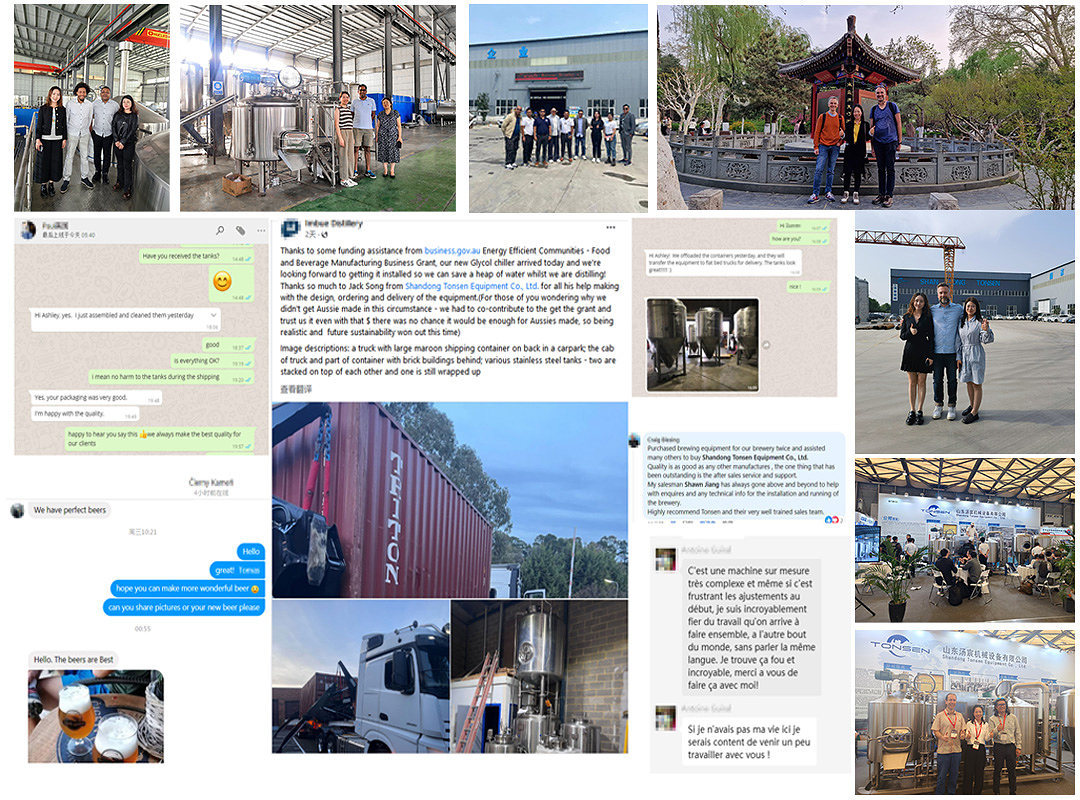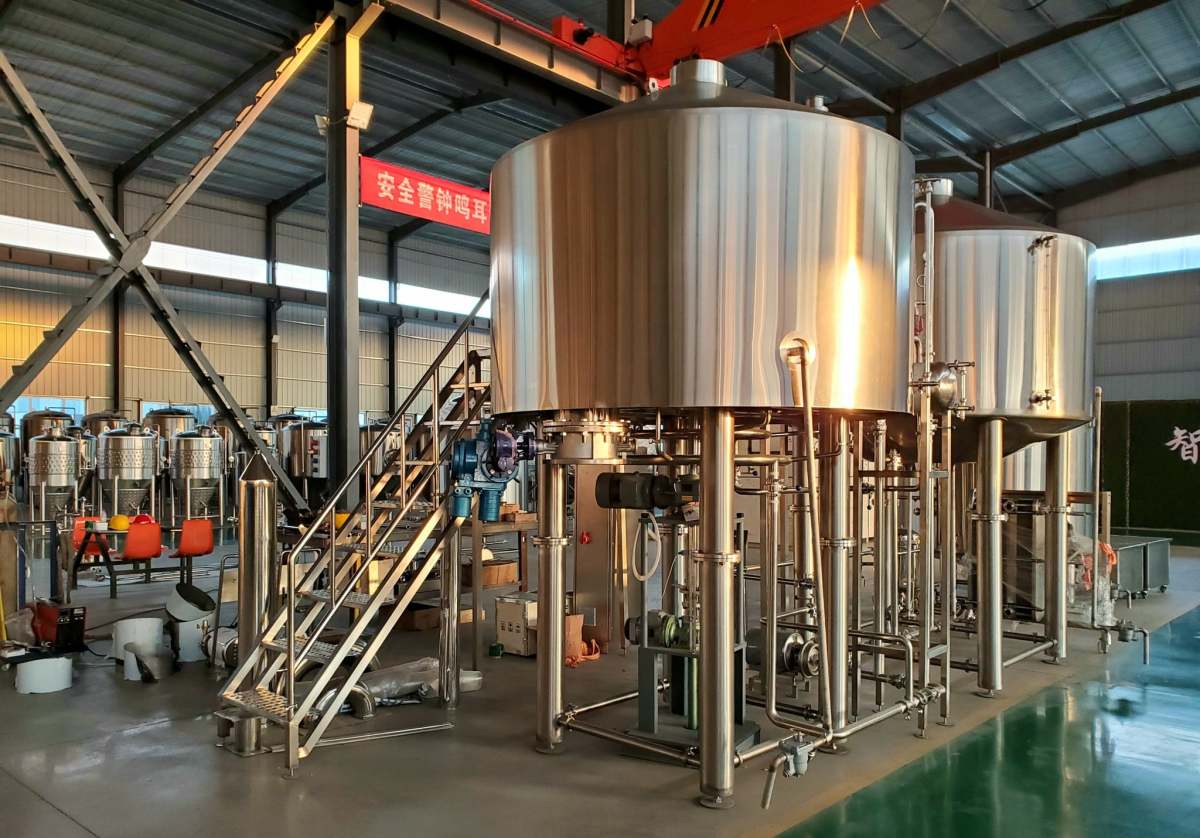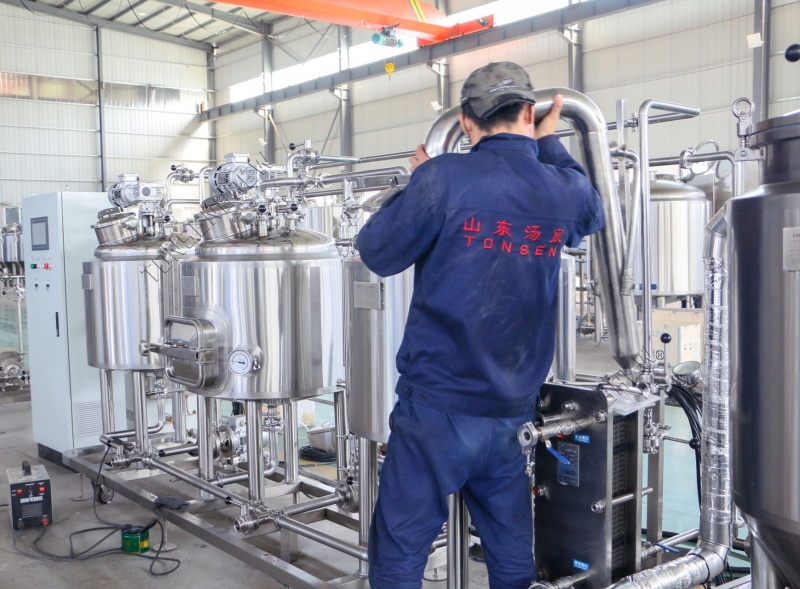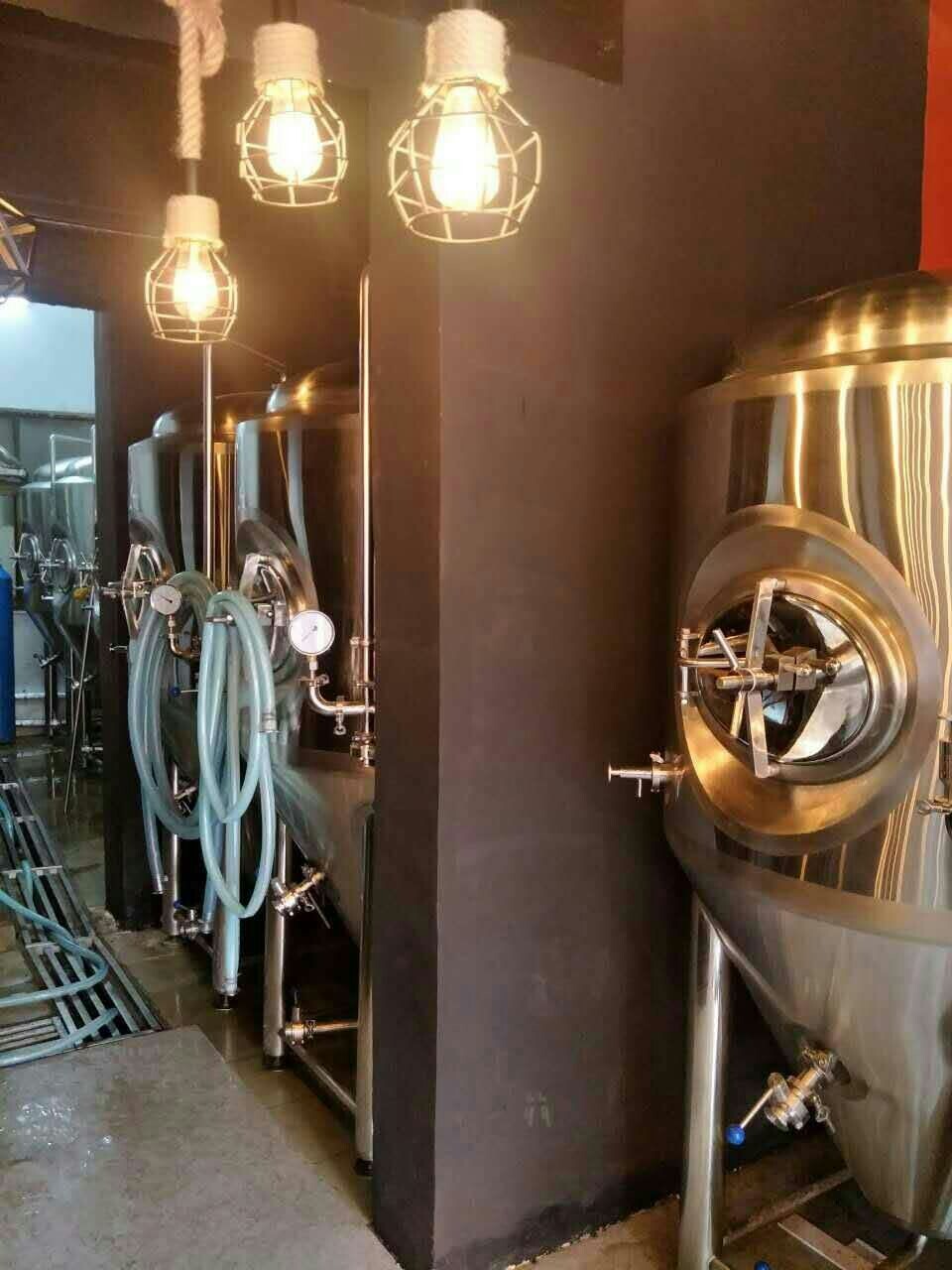RELATED
MESSAGE
What are the 4 ingredients of beer?
Introduction
With the arrival of summer, the craze for drinking beer is coming at any time. So what are the main ingredients of beer, and what equipment is used to make it?
1. Four ingredients of beer
Water
About 90% of beer is water. Water quality directly affects the final taste and chemical reaction process. Deep minerals can give different flavors
Malt
Malt comes from barley. It provides fermentable sugars and aroma matrix required for fermentation. It is the core of the main flavor of beer
Hops
Hops contain bitter acid and aroma oil, which balances sweetness and gives beer a fresh aroma. It is common in various beer styles such as ale and lager
Yeast
Yeast converts sugar into alcohol and carbon dioxide through fermentation. Different strains determine the style of beer, such as ale yeast and lager yeast

I. Fermentation Equipment
Fermentation Vessel / CCT
Fermentation tank, also known as Cylindrical Conical Tank (CCT), is the core component of beer production. It is used to mix cooled wort with yeast and ferment at a controlled
temperature. The industrial-grade fermentation tank is made of food-grade 304 stainless steel, with mirror-polished inner wall and no dead corner design. It supports CIP automatic
cleaning to ensure hygiene and high beer yield.
Stainless Steel Pressure Fermenter
This type of fermenter adds a pressure-resistant design to the conventional tank body, which can withstand a maximum operating pressure of 15 psi, realize in-situ carbonization in the tank,
and improve the delicate taste of beer and the stability of carbon dioxide. Equipped with a double-layer cooling jacket, precision temperature probe and safety valve, the temperature control
accuracy can reach ±0.1℃, and supports top/side manholes and gas-controlled sampling to meet the strict process requirements of large breweries.
Best Conical Fermenter
The conical bottom is designed as a 60° cone, which can efficiently concentrate the precipitation of yeast mud and impurities, making unloading convenient, the supernatant clearer, and the
beer yield higher. With the 360° rotating spray ball and CIP cleaning arm, the cleaning cycle is greatly shortened, labor costs are reduced, and production switching is fast and sterile.
Unitank Fermenter
Unitank integrates fermentation, maturation, carbonization and storage, replacing the traditional tank mode, saving space and pipeline investment. The Unitank produced by Tonsen adopts
an overall mirror-polished inner wall, a polyurethane insulation layer and a high-efficiency heat exchange jacket, supports in-situ cleaning and carbonization, greatly shortens the production
cycle and eliminates secondary pollution.
2. Mashing Equipment
The saccharification system includes a malt grinder, a saccharification pot and a filter tank. The malt grinder is responsible for grinding the malt to a suitable particle size so that the starch
and water are fully in contact; the saccharification pot maintains a constant temperature of 62-68℃ to achieve the decomposition of starch into fermentable sugars; the filter tank is rinsed
with hot water to separate soluble sugars. Tonsen provides a double-roller malt grinder with a capacity of 300kg/h, and supports continuous and batch saccharification processes, compatible
with the two traditional and modern brewing methods of soaking and porridge.
3. Brewing Equipment
Three-vessel Brewhouse
This system integrates the saccharification pot, filter tank and boiling/vortex pot, and the process is seamlessly connected. Tonsen's 1000L model uses a laser-welded 304 stainless steel
structure, supports multiple heating methods, and can be controlled by a PLC to achieve fully automatic monitoring of temperature, flow rate, and boiling time to ensure the consistency
of each batch of products.
Boiling Kettle & Whirlpool
The boiling kettle is responsible for sterilizing the wort and extracting the bitterness and aroma of hops. It is usually equipped with a high-efficiency steam or electric heating system; the
whirlpool uses centrifugal force to separate the spent grains, improve filtration efficiency, and obtain clarified wort.

4. Ancillary Equipment
Heat Exchanger
It is used to quickly cool the high-temperature wort to the yeast inoculation temperature (18–22℃). The cooling medium can be cooling water or ethanol solution, and the area can be
customized according to production capacity requirements.
Cooling System
It consists of a cold water/ethanol kettle and a screw chiller, with a cooling capacity ranging from 100L to 4000L, ensuring stable fermentation and maturation temperature control.
CIP Cleaning System (CIP System)
Including cleaning tanks, disinfection tanks and circulation pumps, all equipment is cleaned without dead corners through CIP arms and spray balls, significantly shortening cleaning time
and saving chemicals.
Yeast Management and Oxygenation System (Yeast & Oxygenation)
Independent yeast tanks are used for yeast cultivation and rejuvenation. The wort oxygenator injects oxygen into the wort before inoculation to ensure healthy yeast reproduction and
optimize fermentation efficiency.
5. Commercial Brewing System (Commercial Brewing System)
The modern commercial system covers the entire process automation solution from grinding, saccharification, boiling, cooling, fermentation to filtration and filling. Tonsen can provide
customized production lines from 100L to 10,000L, and can be expanded to large-scale projects with an annual output of 50,000 tons. The equipment layout, pipeline design and degree
of automation can be customized as needed.
6. Brewing Equipment Companies
Major global manufacturers include:
– Shandong Tonsenbrew: provides a full range of equipment from 100L to 10,000L, with complete R&D, manufacturing and service capabilities;
– Krones AG (Germany): specializes in automated packaging and sterilization systems;
– Alfa Laval (Sweden): specializes in thermal and fluid handling equipment;
– Paul Mueller (USA): expert in large stainless steel containers;
– Praj Industries (India): provider of new energy and fermentation process equipment.

7. In-depth introduction of Tonsen
Company qualifications and scale
Located in Jinan, Shandong, it covers an area of 20,000 square meters and has a Class D pressure vessel production license, ISO9001, CE, TÜV and other international certifications, with
an annual production capacity of more than 500,000 sets.
Advanced manufacturing and continuous R&D
Equipped with laser cutting, automatic welding, CNC processing and large mirror polishing equipment, it can realize the processing of the whole series of products from 100L to 200kL,
with a cutting accuracy of ±0.1mm; it has a special laboratory and cooperates with international brands to continuously optimize energy saving and automation processes.
Professional technical team
The R&D team has more than 70 people, including 8 senior engineers and more than 30 members with bachelor's degrees or above, with an average industry experience of 20 years.
It has in-depth cooperation with Siemens, ABB and others to ensure that the system solution is scientific and reliable.
Global service network
The products are exported to more than 70 countries in Europe, America, Africa and Southeast Asia. It has a localized installation and commissioning team and training center, providing
overseas technical response within 72 hours, 2-year warranty and lifelong maintenance.
Representative customer cases
– Guinness St. James Gate Factory: Using Tonsen stainless steel pressure fermentation tanks to achieve nitrogen carbonization and delicate foam;
– Budweiser North American Craft Brewing Workshop: Introducing Tonsen Unitank, the single tank capacity is 2,000L, the automation level is increased by 30%, and the energy
consumption is reduced by 15%.
8. Cost & Procurement (Brewery Equipment Cost & For Sale)
Depending on the production capacity and degree of automation, the cost of nano/micro-level (1-10BBL) equipment is about US$50,000-250,000, medium-sized (10-50BBL) is about
US$250,000-1 million, and large-sized (above 50BBL) is over US$1 million. Tonsen offers a variety of trade terms and installment plans, and can design equipment layout for free.
9. Conclusion
Through a comprehensive interpretation of fermentation equipment, saccharification equipment, brewing equipment and auxiliary systems, combined with a comparison of major
manufacturers and an in-depth analysis of Tonsen, this article provides a one-stop commercial production solution for breweries. Choosing Tonsen will not only provide industry-leading
equipment and processes, but also enjoy the full support of a professional team and global after-sales service, helping customers reduce costs, improve efficiency, and gain market
competitive advantages.

MESSAGE



